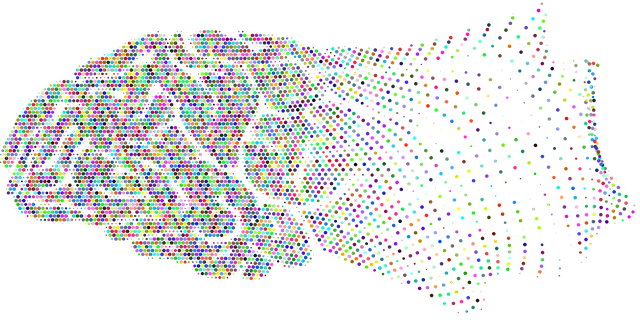Northglenn's Crisis Intervention Teams (CITs) represent a collaborative network of professionals from diverse backgrounds, including mental health therapists and law enforcement, who receive specialized training through the Northglenn Parenting Skills Therapy program. This holistic approach emphasizes emotional intelligence, effective communication, risk management planning, and burnout prevention to safely de-escalate mental health crises while fostering a supportive community environment. The program equips professionals with evidence-based techniques, resilience-building skills, and self-awareness tools to confidently handle high-stress situations, ultimately enhancing crisis support effectiveness and mental health awareness.
In today’s challenging social landscape, effective crisis intervention teams (CITs) play a vital role in supporting individuals during traumatic events. This article explores CIT training programs with a focus on Northglenn’s unique perspective, emphasizing the fusion of parenting skills and therapy techniques. We delve into why these approaches are essential for handling crises effectively. Additionally, we provide insights into designing comprehensive training to enhance the impact of CITs, particularly highlighting Northglenn’s expertise in integrating parenting skills and therapy.
- Understanding Crisis Intervention Teams: A Northglenn Perspective
- The Importance of Parenting Skills in Crisis Response
- Therapy Techniques for Effective Intervention
- Designing Comprehensive Training Programs for Maximum Impact
Understanding Crisis Intervention Teams: A Northglenn Perspective

In Northglenn, Crisis Intervention Teams (CITs) play a vital role in navigating mental health crises and supporting individuals in distress. These teams are composed of trained professionals from various backgrounds, including mental health therapists, social workers, and law enforcement officers, all working together to de-escalate situations and provide immediate assistance. The Northglenn Parenting Skills Therapy program serves as a cornerstone for CIT training, emphasizing the importance of emotional intelligence and effective communication in crisis management.
By integrating risk management planning for mental health professionals, CIT members are equipped with burnout prevention strategies that enhance their resilience. This collaborative approach ensures that individuals facing mental health challenges receive holistic support tailored to their unique needs. The Northglenn perspective on crisis intervention underscores the community’s commitment to fostering a safe and supportive environment where everyone has access to timely and effective care.
The Importance of Parenting Skills in Crisis Response

In crisis intervention, especially within Northglenn Parenting Skills Therapy programs, fostering effective communication and understanding is key. Teaching individuals on how to navigate a mental health crisis requires more than just technical knowledge; it demands empathy and strong parenting skills. Training should equip participants with tools for self-awareness exercises that enable them to recognize their emotional responses during high-stress situations. By integrating Mind Over Matter principles, these programs empower professionals to calmly intervene and conduct accurate risk assessments for mental health patients.
The ability to remain composed under pressure is vital in crisis response. Northglenn Parenting Skills Therapy sessions should focus on developing resilience and stress management techniques among practitioners. This includes learning how to de-escalate situations using effective communication strategies, which can prevent further complications. Through these comprehensive training programs, mental health professionals gain the confidence needed to handle crises while ensuring patient safety and well-being.
Therapy Techniques for Effective Intervention

In crisis intervention team training programs, focusing on effective therapy techniques is paramount. Northglenn Parenting Skills Therapy, for instance, emphasizes evidence-based strategies that empower mental health professionals to handle high-stress situations with empathy and skill. By incorporating practices tailored to emotional regulation, these programs enable interveners to support individuals in crisis while fostering a sense of safety and calm.
The integration of risk management planning for mental health professionals is a key aspect. Training involves teaching practitioners to assess and mitigate potential risks, ensuring both the client’s well-being and their own. This holistic approach to crisis intervention not only enhances the effectiveness of support but also promotes mental health awareness, allowing interveners to make informed decisions in challenging scenarios.
Designing Comprehensive Training Programs for Maximum Impact

Designing comprehensive crisis intervention team training programs requires a multifaceted approach to ensure maximum impact. Northglenn Parenting Skills Therapy emphasizes the importance of tailoring these programs to meet the unique needs of the community they serve. A well-rounded training curriculum should incorporate not only technical skills for managing crises but also emotional resilience building and de-escalation techniques. By combining theoretical knowledge with practical exercises, participants gain confidence in handling high-pressure situations effectively.
Moreover, integrating Community Outreach Program Implementation strategies into training fosters a collaborative environment where team members learn to communicate and coordinate with local resources. Mental Illness Stigma Reduction Efforts are also integral, promoting understanding and empathy among team members to better support individuals facing mental health challenges. Public Awareness Campaigns Development further enhances the program by educating the broader community about crisis intervention, thereby encouraging proactive engagement and support.
Crisis intervention team training programs, as demonstrated through Northglenn’s perspective and incorporating essential skills like parenting and therapy techniques, play a pivotal role in equipping individuals to handle crises effectively. By designing comprehensive training that encompasses these key areas, we can maximize the impact of interventions, fostering healthier outcomes for those in need. In light of the growing importance of crisis response, investing in robust programs that include Northglenn Parenting Skills and Therapy is more crucial than ever.














